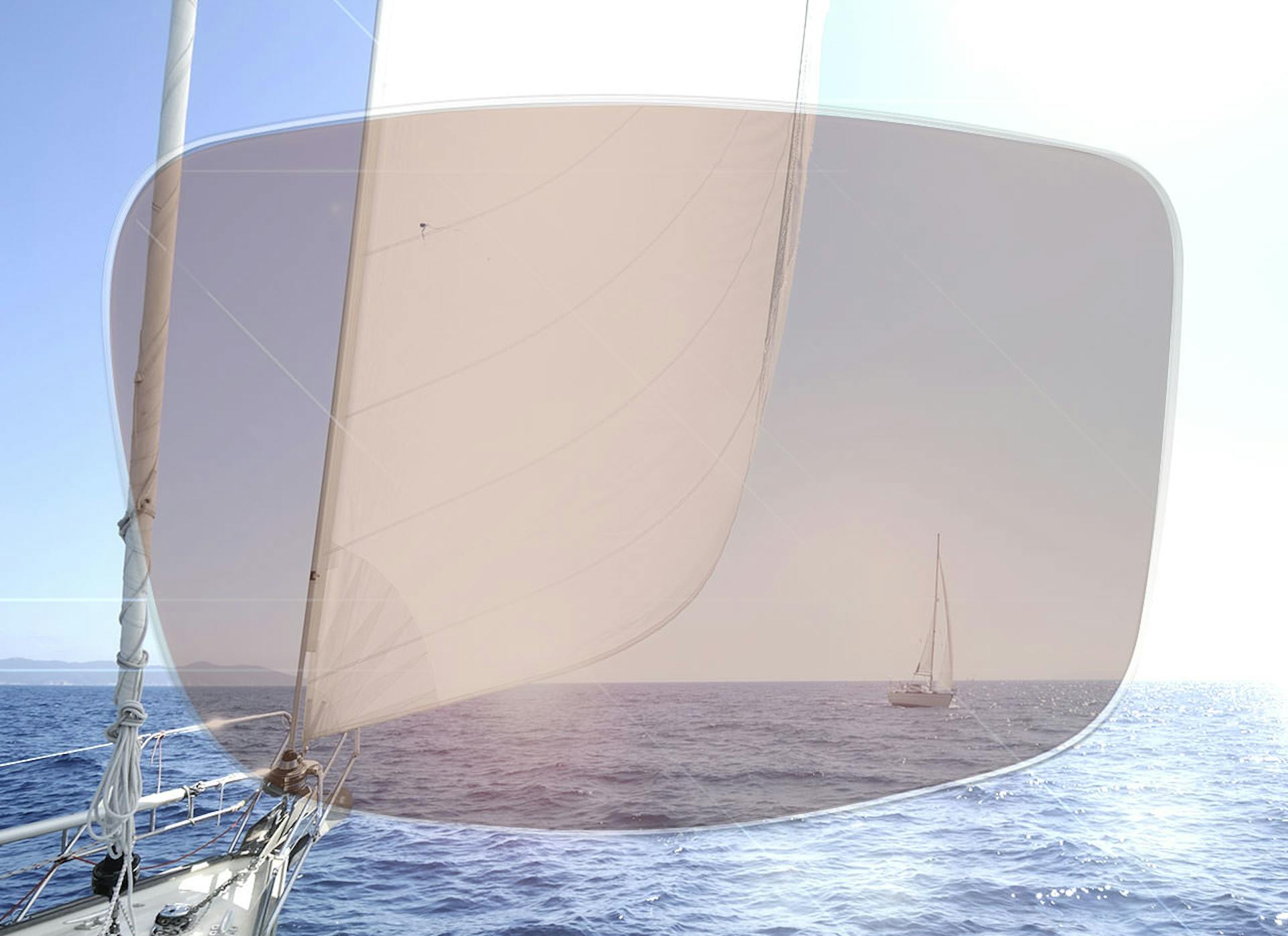Polarised sunglasses: Comfortable vision without distracting glare
BETTER VISION explains how polarised lenses reduce irritating glare for optimum vision.
Whether you’re a snow sports enthusiast, water sports junkie, or you simply enjoy spending a lot of time outdoors – polarised sunglasses can significantly reduce reflections and glare, to help you see better.
Glare reflected off transparent or wet surfaces is not only annoying and distracting – it can also affect your vision. Polarised glasses may support and improve your sight in the following instances:
- General light-sensitivity. Those who are sensitive to bright light will benefit from these lenses, as well as the UV protection it offers (if the lenses offer full UV protection).
- If you love to fish, row, boat, or do other water sports, polarised sports sunglasses will allow you to see better below the water’s surface. This may come in handy when you want to reel in that giant, or if there’s an obstacle below the water that can be potentially dangerous for your boat or canoe.
- Driving. When we’re on the road, we’re often distracted by glare, caused by Sunlight reflected off wet roads, windshields and car hoods.
- Snow sports. When combined with the traditional rose or yellow ski goggle hues, polarisation filters can reduce the distracting bright sunlight reflecting off snow. However, speak to your eyecare professional before buying polarised snow goggles or using it for skiing because it can affect your contrast perception.
- Post surgery. You may find that your eyes are more light sensitive for a few months after eye surgery such as cataract removal. Wearing polarised glasses can make you feel more comfortable and can help you see contrast better.

-
Without Polarisation Filter With Polarisation Filter
Polarised lenses drastically reduce glare from water to improve overall vision.
What does polarised mean, exactly?
Natural light travels in all directions, so it’s described as “unpolarised”. When rays of light are reflected by a surface such as water, snow, wet roads or windows the reflected light rays will be aligned. Basically this means that light rays that usually reflect in various directions will mainly be reflected in a single direction, so they are polarised.
The majority of this light is horizontally polarised, i.e. it is arranged horizontally.
Accordingly, the molecular structure of special film technology used in polarised lenses from ZEISS is horizontally aligned to form a dense grid. The horizontal waves are then absorbed by the highly-efficient grid structure. As a result, distracting and potentially dangerous reflections are practically eliminated by polarised lenses. In addition your colour perception will be more vibrant. High-quality lenses will also fully protect your eyes against harmful UV rays.Can I wear my polarised glasses in any situation, at all times?
Although it can drastically improve your vision, there are times when they can actually impair your vision, and it’s not ideal to wear them in these instances.
Polarised sports sunglasses have some pros and cons for snow sports enthusiasts, but they’re not suited to downhill skiing. While it will reduce the glare from the sun on the snow, it may darken details in the shade. When skiers are unable to distinguish between patches of ice and obstacles, it can be potentially dangerous.
Displays on LCD screens are also often difficult to see, as the polarisation filters may reduce the visibility. Although most modern cars have improved their displays and these can be clearly seen through polarised sunglasses, those who drive older models may struggle to see important messages or warning lights. Similarly, pilots and boaters can also struggle to see LCD displays.
Always consult your eyecare professional before purchasing a polarised lens product.
To what extent can polarised glasses be customised?
With modern technology, it’s possible to apply polarisation filters to almost any type of lens. This includes prescription sunglasses for conditions such as myopia, presbyopia, or astigmatism.
Polarisation also works very effectively within dynamic sun lenses such as ZEISS AdaptiveSun. These kind of special sunlenses work with photochromic technology and can adapt their intensity to changing light conditions. These lenses become very dark in intense sun light, and turn back to moderate darkness in shade or when the sun fades.
From dark to darker – smart sunglass lenses that adapt automatically to changing light conditions.
What´s your favourite colour and style?When buying polarised sunglasses, what should I look out for?
Your lenses should definitely offer full UV protection, and you need to be aware of the fact that UV protection doesn’t come standard with all lenses. To protect your eyes from UV rays that are harmful to the eyes and surrounding skin, your lenses need to at least block rays up to 400 nm. Your eyecare professional will be able to confirm whether the brand you choose offers suitable protection. Remember to also ask about clear lenses that offer full UV protection so you’re always protected, even on cloudy days.
You can also enhance your sunglasses with an anti-reflective coating applied to the back surface of the lens, to eliminate reflections from behind.

Make the most of your sunglasses by ensuring that the tint you choose is suitable. If you’re a runner, golfer, do water or snow sports, mention this to your eyecare practitioner before choosing your polarised sports sunglasses.
Customised polarised sunglasses are often more expensive than normal sunglasses – but for good reason. The glasses will be tailored to your visual prescription and needs, and you’re assured of the protection and level of comfort.
TAKEN FROM ZEISS : WWW.ZEISS.COM
